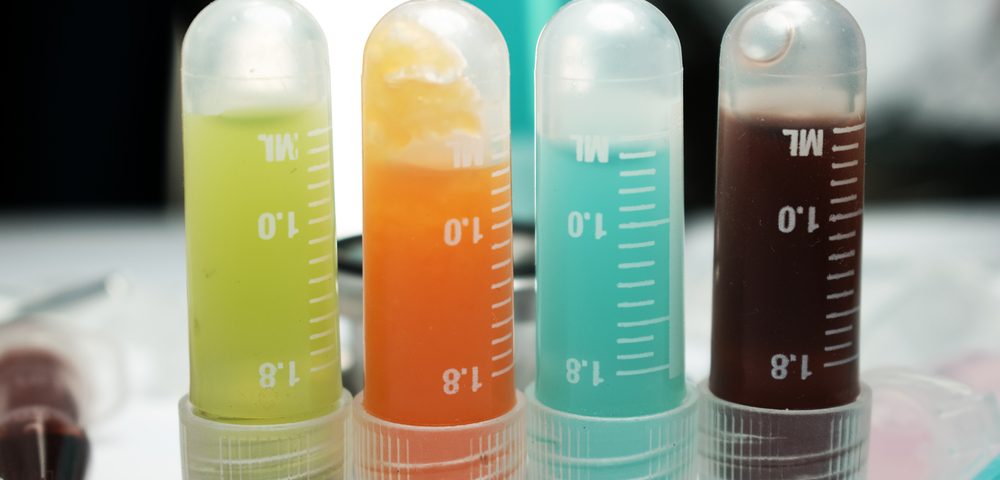Immunotherapy agents that block the PD-L1/PD-1 immune checkpoint appears promising as first and second line therapies for metastatic bladder cancer patients who are not eligible or progressed despite first-line platinum-based chemotherapy.
The findings are based on recent data from two Phase 2 trials presented at the European Society for Medical Oncology (ESMO) 2016 Congress Oct. 7-11 in Copenhagen, Denmark.
About 50 percent of patients with metastatic bladder cancer are not eligible for the standard of care platinum-based chemotherapy with Platinol (cisplatin). These patients therefore receive alternative chemotherapy regimens, but show only nine to 10 months survival, revealing the need for better, more effective treatment approaches.
The open-label, Phase 2 KEYNOTE-52 study (NCT02335424) assessed the safety and effectiveness of the immunotherapy agent Keytruda (pembrolizumab) as first-line therapy in Platinol-ineligible patients with locally advanced or metastatic bladder cancer. Keytruda 200 mg was administered through intravenous injection on day 1 of each three-week cycle for up to 24 months.
Results from the first 100 patients enrolled in the study revealed that the objective response rate, the primary endpoint, was 24 percent. Having 10 percent or higher PD-L1 expression in immune or tumor cells was identified as the cut point that determined which patients were more likely to respond to Keytruda; among the 30 patients reaching this cut point, 37 percent responded to treatment.
“Pembrolizumab has substantial activity with a favorable safety profile as first line therapy in cisplatin ineligible patients with metastatic bladder cancer,” Dr. Arjun Balar, assistant professor at New York University Langone Medical Centre and KEYNOTE-52 lead investigator, said in a press release.
“The biomarker cut point will need to be validated in the larger study population, but seems to identify patients most likely to respond to pembrolizumab well. Immunotherapy is rapidly redefining our treatment approach for patients facing this dreadful disease.”
Another concern among metastatic bladder cancer patients was the lack of global standard of care for patients who progressed while or following platinum-based chemotherapy. But immune checkpoint inhibitors may be changing the game for such patients.
“This year the first immune checkpoint inhibitor, atezolizumab, was approved for patients with bladder cancer and CheckMate 275 provides similar results with nivolumab in the second line setting,” said Dr. Maria De Santis, associate clinical professor for oncology at England’s Cancer Research Centre, University of Warwick.
“Immune checkpoint inhibitors have started to alter the therapeutic landscape for bladder cancer. We expect even more dramatic changes in the coming years with the use of immunotherapy in other clinical stages and as combination therapy,” De Santis said.
The single-arm, open-label Phase 2 CheckMate 275 trial (NCT02387996), the largest study of a PD-1 inhibitor in bladder cancer, assessed the safety and effectiveness of Opdivo (nivolumab) in 270 patients with metastatic bladder cancer who progressed or recurred following treatment with a platinum agent.
The researchers reported a 19.6 percent objective response rate among the 265 patients who were evaluated for effectiveness. Median duration of response had not been reached at the time of data cut-off, with a median follow-up of seven months.
Importantly, the objective response rate was higher than that achieved historically with chemotherapy, even in patients with very low levels of PD-L1 protein in their tumors (less than 1 percent).
“This data is being submitted to support registration of nivolumab for patients with metastatic urothelial cancer that has progressed despite platinum-based chemotherapy, an indication for which the U.S. Food and Drug Administration has granted breakthrough therapy designation to nivolumab,” said lead author Matthew Galsky, professor of medicine at Mount Sinai School of Medicine in New York. “Immune checkpoint blockade has become the most promising approach for these patients.”
“Immune checkpoint inhibitors have started to alter the therapeutic landscape for bladder cancer,” De Santis said. “We expect even more dramatic changes in the coming years with the use of immunotherapy in other clinical stages and as combination therapy.”


